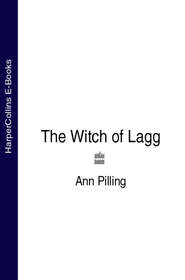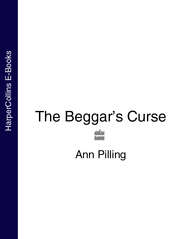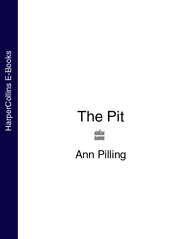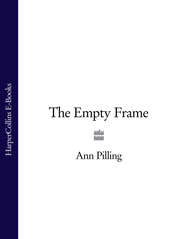По всем вопросам обращайтесь на: info@litportal.ru
(©) 2003-2024.
✖
Black Harvest
Настройки чтения
Размер шрифта
Высота строк
Поля
“Well, we were warned,” Colin pointed out. “He’s obviously got a thing about strangers. The builders must have really upset him, then a great red setter comes out of the blue and knocks him flying. Dad’s right about Jessie, she has got a screw loose.”
“A dog like that should have been painfully destroyed at birth,” Oliver said suddenly. There was a dreadful silence. Colin looked at him in disbelief and Prill’s mouth dropped open.
“That’s a cruel thing to say… a really terrible thing.” She wanted to cry, and Colin felt like hitting him. The two children loved Jessie; she was their best friend.
“It’s a joke… only a joke…” Oliver stammered. “It’s what my father says sometimes, about really awful pupils, you know.”
They could imagine. Uncle Stanley was a teacher too. According to Dad he had a dry, sarcastic sense of humour, and sometimes reduced the boys in his school to tears. Colin stood up and said firmly, “Come here, Jessie.” The dog came, like a lamb, and he fastened the lead on.
“If it hadn’t been for you it would never have happened,” Prill said. “You knew perfectly well that wasn’t the way down to the beach. You just wanted to spy on him. I’d have thought you’d have had enough of old people, living with them all the time.”
“Oh, let’s get moving,” Colin snapped. “I want a swim.”
They set off down the track, but Oliver stayed where he was, staring after them.
“Hurry up, can’t you?”
“I’m not coming. I’m going back to the bungalow.”
“Mum did say we had to keep an eye on him,” Prill whispered, then she shouted back, “Oh, come on, Oll, don’t sulk.”
“I’m not sulking.”
“Leave him,” Colin said impatiently. “Even he can’t get lost between here and the house. We’ll have a better morning without him, anyway.”
Oliver had no intention of going home. As soon as the other two had dropped out of sight he walked quickly back along the path, into the trees. His watch said twelve noon, the time the old man went for his daily think at Danny’s Bar in Ballimagliesh. He’d heard that priest telling Uncle David. “Never misses a day, regular as clockwork,” he’d said.
From his hiding place he watched Donal Morrissey leave the van and walk off up the field with his dog at his heels. He moved quite quickly for such an old man, his hands thrust deep into the pockets of a ragged overcoat, a squashed green hat on his head. Oliver could hear him muttering as he walked past the neat little pyramids of peat blocks, stacked up to dry all along the track.
When he was out of sight the boy crept out and went up to the van. He pushed at the door and it swung inwards slowly. Oliver went in.
It was dark and hot inside the caravan, and very smelly. He detected a dog, and dirty clothes, and food that should have been thrown away. Something else too, a sharp scent, slightly sweet, the peat the old man was burning on his stove. Mother had said you never forgot the smell of it. She’d lived in Ireland once.
In the middle of the floor was a table, a chair, and a filthy dog blanket. All round him cardboard cartons were stacked up to the roof, and he could see junk heaped in corners, broken furniture and bags of rubbish, old biscuit tins, rusty tools. It looked like a rag-and-bone man’s yard.
The mess didn’t surprise Oliver. At home his favourite resident, Mr Catchpole, lived in a room just like this, with a kind of nest in the middle for his bed and television set. Everywhere else was stuffed with rubbish, except that Oliver and Mr Catchpole knew it wasn’t rubbish. It was the story of his life. All his eighty-three years were stacked up in boxes in that bedroom on the second floor. Memories mattered to old people, that’s why they kept things.
The smell in the van was making him feel ill. He was dying to have a look in the biscuit tins but he felt queasy, so he climbed down the van steps again and took a few breaths of fresh air.
On the sea side of the van there was a tiny patch of garden. The neat rows of vegetables were a strange contrast with the mess inside. Perhaps someone from the farm helped him. According to that priest, the O’Malleys thought a lot of Donal Morrissey. He had worked for the family for years and years.
Suddenly Oliver noticed something moving on the bright green potato leaves and bent down for a closer look. One of the plants was a mass of small stripy insects. He felt in his pocket for his little magnifying glass then remembered he’d left it in the bedroom. But he did have a matchbox. Very carefully he picked a couple of the beetles off a leaf and shut them inside.
He walked up and down the rows of vegetables stopping to turn leaves over and inspect the stalks. Something was attacking Donal Morrissey’s potato crop. The striped creatures had eaten great holes in the leaves, and what remained was covered with dark pink grubs. There would be tens of thousands by the end of the summer, unless something was done about it.
When he stood up again he spotted someone waving at him a couple of fields away. It was Kevin O’Malley, the curly-haired boy from the farm who’d brought the milk that morning. He’d tell him about it. He might know about spraying crops.
Then he thought better of it. This was something he could tackle on his own. He knew quite a bit about natural history from his father, more than those Blakemans, with their swimming and their athletics. They thought he was weedy anyway. And he didn’t like the way they’d talked about the old man; Prill had said he was mad.
Oliver suddenly thought of something. He knelt down again, gritted his teeth, and grasped one of the plants hard, shaking off the insects as they ran over his fingers. He pulled it out of the earth. It wasn’t exactly stealing, all that came out of the ground were some shrivelled skins, a bit like large raisins. Poor Donal Morrissey.
Kevin O’Malley waved again, and shouted something, but Oliver pretended not to hear. He slipped the matchbox into his pocket and, holding the potato plant at arm’s length, started to walk rapidly in the direction of the bungalow.
Chapter Four (#ulink_67404409-25cd-50dd-9f39-d760fa09e8f3)
COLIN WOKE UP and clicked his light on. It was two in the morning. Oliver slept peacefully in the other bed, his warm pyjamas buttoned right up to the neck. But his face looked cool.
Colin was red hot. He wore nothing but thin cotton trousers and these, like his bedding, were soaked with sweat. He felt unwell, horribly warm and rather dizzy, and there were griping pains in his stomach, like the pangs of hunger, though he’d had a big meal quite late in the evening.
Prill was right, there was a funny smell about this place. She had told him about it that morning, how she’d gone along the beach looking for a dead animal, the stench was so overpowering.
Colin had been doubtful. Prill did sometimes get odd ideas into her head. She had a wild imagination. Now and then her English compositions were quite fantastic. He was more down to earth. “Uninspired” was usually scrawled across his essay.
“What kind of smell?” he’d wanted to know.
“Rich, but sickly. Rotten, yet sweet somehow. It really turned my stomach.”
“Was it like pigs?”
They both laughed at this. Dad had once booked a country holiday for them in a bed and breakfast place that had turned out to be a pig farm. Pigs had a very strong, sweetish smell, a bit like sugar boiling, a bit like hops in a brewery. They’d all smelt of pigs, all holiday.
The bedroom window had been stuck fast with paint, and Dad had prised it open with a screwdriver. But now Colin shut it again, anything to get rid of that smell. If it was fertiliser they’d used an awful lot of it. Perhaps the O’Malleys were making up for lost time, with Dr Moynihan’s money.
He sat down again, his head swimming; the foul smell was still there, though fainter. He felt himself falling forwards and put his hands out flat, to steady himself. The bedclothes were sodden. He stood up and felt them; pillows, sheets and stripy cover were all very damp, almost wet. The sweat of one boy couldn’t have caused all that.
And there was something else. At the risk of waking Oliver he switched the main light on. He had to be sure. Mixed with the farmyard smell there was a mustiness in the room that reminded him of a cellar, and it was coming from his bed. Then he saw why. The edges of his sheets and pillowcase were softly edged with grey, and a greenish fuzz was starting to form in patches over them.
He put out a shaky hand and touched it. The cobwebby strands fell away and became a green cloud, dispersing slowly into the clammy air. It was decay.
Just for a second Colin felt like screaming. Some strange atmospheric condition must be causing all this heat and stench, making a mould form on everything in the room. What he needed was a gust of cold fresh air. He ought to fling the windows wide open, but he just couldn’t bear that smell from the fields.
At least he could open the door. He stumbled past Oliver’s bed and stubbed his toe on something hard. The sudden pain made him plump down abruptly on to the carpet. His cousin turned over, muttered a jumble of words, but slept on. Colin pulled out something that Oliver had been trying to hide with his bedspread. It was a large glass bottle, the kind used for making home-brewed beer; Mum had discovered six of them at the back of a kitchen cupboard. Oliver had filled the bottle with green leaves, already chewed to tatters by some striped insects that were crawling about inside. There were dozens of them.
Colin didn’t like beetles much. He noticed with relief that the top of the container was firmly corked and sealed, but in a way the mad activity of the tiny creatures gorging on potato plants in the middle of the night made him feel less panic-stricken. So this was what Oliver had been up to in the afternoon, creeping around secretively, even more silent than usual, shutting himself up in the bedroom with his insect books. What on earth was he playing at?
His face was very close to Oliver’s bedspread. It too felt damp. There was no sign of the green must he’d found in his half of the room, but he could still smell the mouldiness, mixed up with that sickening rotten smell.
He knew he would be awake till daylight came so he opened the door and lay down flat on the strip of carpet between the beds, taking slow, deep breaths, trying desperately to calm himself. Having the door open made no difference at all. Heat hit him in the face like the sting of boiling water. He lay there in panic, hating everyone in the house for being fast asleep.
Prill was asleep, but dreaming. The small green field that sloped away from her window had turned into a vast sweep of dark earth and it was raining. She knew it was autumn, from the trees.
In the distance someone was moving about, not walking upright but crawling over the soil, like an animal trying to reach its hole. In the dream Prill didn’t move, but suddenly the scene was jerked nearer and she could see everything clearly, right up against her face. The field was planted with some crop that was rotting as it grew. The stalks were bright green but the leaves had turned slimy and dark. The whole field was black, as if a fire had swept over it.
The crawling figure was a woman, with arms and legs like sticks. She moved painfully, rooting among the scorched leaves, clawing at the soil, putting what looked like clods of earth into her mouth then spewing them out on to the slime of the furrows.
Prill closed her eyes, willing the picture to go away, but when she opened them the woman was outside the window, her mouth open in a scream and the wet soil dripping out of it. Her ridged yellow fingernails plucked at the pane, and Prill saw her face, with its high, domed forehead, its cloud of reddish hair, the prominent cheeks from which all the flesh had dropped away.
She was crying out, but Prill heard nothing. She was helpless, cut off, sealed away behind a thick wall of glass through which the woman moved and implored her, bobbing and jerking about like some ghastly marionette.











